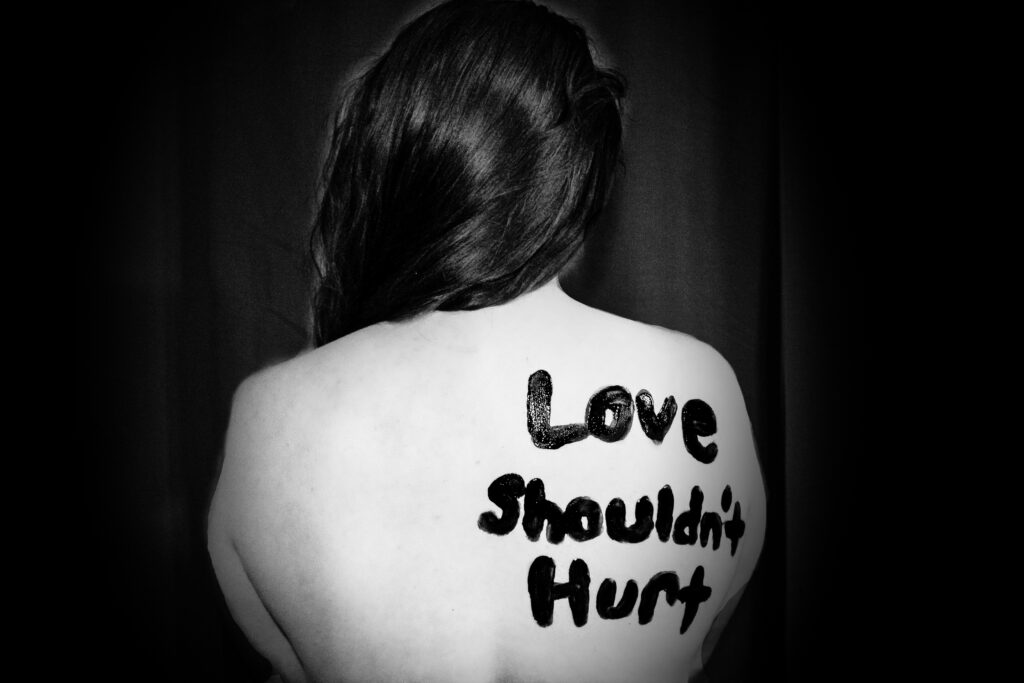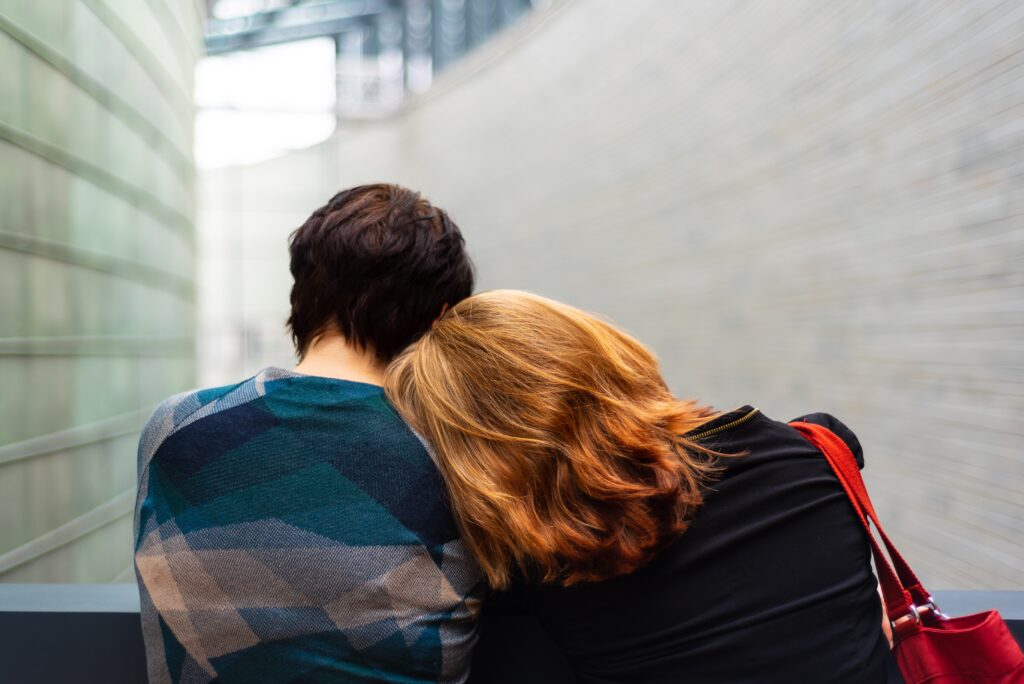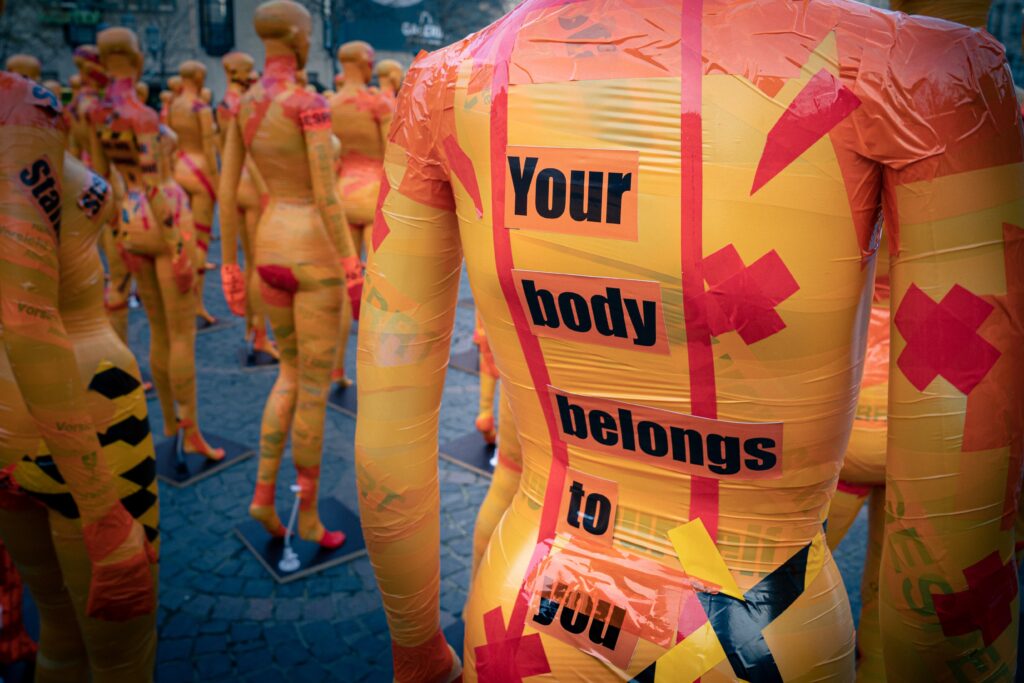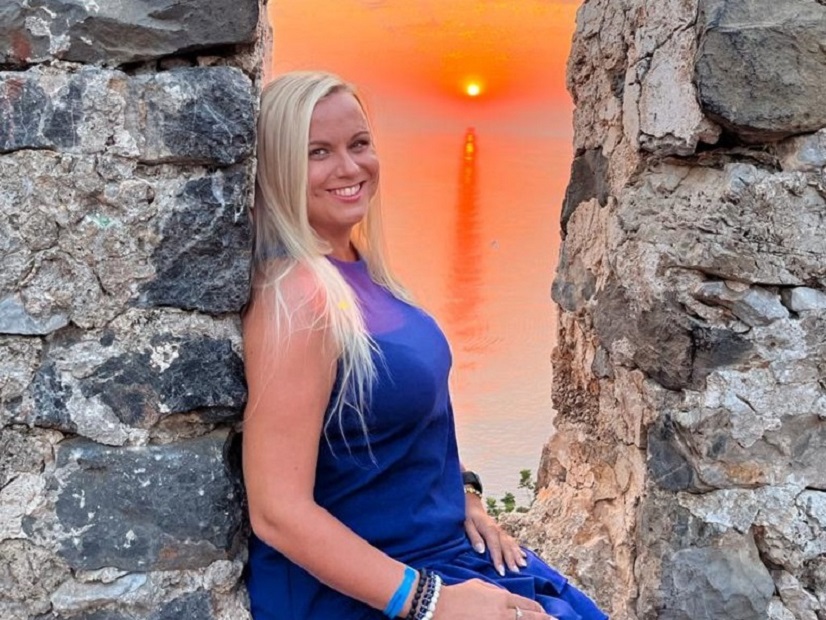In the wake of the Depp vs Heard trial, journalist Svetlana Stsur spoke to domestic abuse survivor and advocate for victims of domestic abuse in Estonia, Merli Kaunissaar, who knows from experience how skilful abusers can be at imitating calm, rational behaviour in public. She believes that we should always be careful not to fall under the charm of an abuser, as nobody is really safe from the risk of engaging in an abusive relationship.
On 1 June this year, actor Johnny Depp won his defamation trial against his ex-wife, actress Amber Heard. The trial was broadcast on YouTube and caused a global public reaction on all media platforms.
Without going into the details of this infamous legal battle, in short, in 2018 Amber Heard wrote an article in the Washington Post where she indirectly accused her ex-spouse Johnny Depp of domestic violence. This article caused massive damage to Depp’s career and public image. The public and the jury first sided with Heard during the first London libel case, which Depp brought against The Sun newspaper for calling him a “wife beater” in an article. Depp lost this trial but went to court again, this time against Heard herself in a defamation trial in Virginia, and managed to convince the public, social media followers across the globe, and the jury that his ex-wife’s public accusations against him were false.
The outcome was a happy one for Depp and his legal team, as well for the millions of his fans who kept posting social media content with the hashtag #justiceforjohnnydepp throughout the trial. However, many expressed their concern for the future of potential victims of domestic abuse as the trial did eventually come to the dangerous conclusion that without recorded evidence of abuse, there is no abuse.
The intense public scrutiny and judgement of Depp’s supposedly calm and rational behaviour, and Heard’s fake and irrational behaviour, followed by hundreds of memes destroying Amber Heard’s public persona, all left a lingering unsettling feeling from following this case.
I met for a chat with Merli Kaunissaar, an Estonian social worker who is herself a survivor of domestic abuse and a public advocate for other victims who have been through similar experiences to her.
In 2019, Merli published a story in her blog, “My life with a Psychopath”, to help other women in abusive relationships. The story went viral in the media and led to the establishment of the secret women support group, which brought support and relief to hundreds of victims of domestic violence.
Merli was honoured with a Brave Citizen medal by the Estonian Ministry of Justice, followed by an invitation to the president’s (at the time, Kersti Kaljulaid) reception in 2020.
How do you feel about the Depp vs Heard case?
We are all aware of this case, regardless of whether we wanted to be, because it just kept popping up in our newsfeed. (laughs) This whole story became interesting for me when people started actively discussing Amber’s body language and her behaviour in court on social media: whether Amber was supposed to behave this or that way if she was truly the victim; or that Johnny is so calm and chill, and there is no way that he could be the abuser in that relationship…
The issue, though, is that we don’t have a handbook on perfect victim’s behaviour. It’s a lot more complicated. If a person doesn’t cry, it doesn’t automatically mean that abuse didn’t happen. Also, if the victim defended themselves, it doesn’t make them an abuser too. However, in a toxic relationship, people quite often end up mutually abusing each other.
By the way, abusers can be very successful at imitating calm and rational behaviour. A court can easily become a stage for an abuser to cynically and cruelly play with their victim. For instance, the abuser can wear the same tie to court that they used to strangle their victim. And only the victim knows that this tie is the weapon that they have been tortured with. The victim can’t just stand up and announce in front of the judge that this is the evidence, that the abuser is using this tie to intimidate them. There are so many ways to manipulate the victim’s emotions… The abuser can snap their fingers in the courtroom to make a sound that they used to do before abusing the victim. Taking all the above mentioned, I can totally imagine Johnny Depp as another abuser, who demonstrates perfectly calm and calculated behaviour for the public.

Are abusers like serial killers in a way, in that they can’t stop being abusive towards their partners? Or does it depend on the particular relationship?
Domestic violence can happen as an episode in life, triggered by the death of a relative or overall tensions in the relationship. If it’s just an unfortunate episode, a person who acts violently can admit that they were wrong, sincerely apologise for it, and never do it again. Unfortunately, quite often it is the opposite scenario. A person can act violently towards their partner, apologise for it, seem to be genuinely sorry, but then soon do it again.
The abuser can also try to persuade the victim that it is their fault – that the violence happened for the first time because there was something in the victim’s behaviour that supposedly triggered the abuser. In this case, it is an adopted behaviour pattern that will likely be demonstrated by an abuser in all their relationships.
Is it true that abusers are the best at dating?
Yeah, this is true. Abusers can be extremely charming in the beginning of the relationship: they can shower you with gifts, take care of you, want to be around you all the time, communicate with you throughout the day, etc. By the way, this can be particularly endearing for Estonian women because in our culture we tend to be more reserved about our feelings and this doesn’t help when it comes to dating. You know that there is this saying that women love with their ears (laughs)… so a date who is more attentive than average can be a pleasant surprise for the Estonian woman.
However, you can spot some red flags with the abuser in the very beginning. For example, if you notice that suddenly all your friends and family have disappeared from your life, and the only person left is your new partner. And then, when you want to reconnect with your circle, your partner gets easily offended: “I have planned such amazing things for us today, let’s spend this day together”.
If you claim your personal time, your new lover may accuse you of falling out of love or even of infidelity.
So the situation escalates and if physical violence does not happen, emotional violence does. The emotional violence is difficult to notice but, in a way, it is even worse than physical abuse. Bruises will eventually heal but psychological trauma can be very difficult to treat.
If the abuser gets his way, the cycle goes on: there is this peaceful phase when everything is perfect, and suddenly there is the problem, manipulation, emotional or physical abuse, apologies with flowers, and back to square one.

Can an abuser get better with therapy?
I will not dare to say that this is impossible. If an abuser takes responsibility for their actions and genuinely seeks treatment, there is a chance. Just attending therapy is not enough. A genuine desire to be a better person is an essential premise.
The major problem with abusers is that they have a chronic lack of empathy – this emotion did not fully develop at early stages of their life due to various circumstances. So to expect that the abuser will change overnight is a little bit naïve.
A person with abusive tendencies can change, but it requires a lot of effort and clear personal motivation – not just because the partner asked for it.
How well is Estonia dealing with domestic violence compared to other countries?
Well, in terms of domestic violence, we were ranked at the top alongside Finland in 2019. It does not necessarily mean that we have the most violent households in Europe; on the contrary, it may simply imply that we are just good at noticing and reporting domestic abuse. But this is a subject for separate discussion.
Even though I can see some progress that Estonian society has made on this issue, there is still a lot of victim-blaming going on: “If the situation was so out of hand, why didn’t she just leave? Why did she have children with him if he was such a bad person?” In domestic abuse cases, the public tends to question the victim’s behaviour, instead of focusing on the abuser and their motives for violence. The victim is always in the most vulnerable position when they open up about their experiences.

What are the main factors that lead to domestic abuse in a relationship?
There is a psychological test that you can take to identify if you tend to gravitate towards abusive partners.
Generational trauma comes into play here. If a girl witnessed domestic abuse in her family, there is a big chance that she will choose an abusive partner herself. One of the main reasons behind it is that the victim’s brain got accustomed to the abusive situation in the family, so for them it has become a normality.
Isn’t this like children from families with alcoholic parents?
You are right! A child who grew up with heavily drinking parents, at the beginning wants nothing to do with alcohol but later in life for some reason often ends up around alcoholics or starts drinking themselves.
Victims often engage with problematic partners out of an increased sense of empathy and a desire to save the abuser, something that they could not do as a child with their own family. It does not end well for them unfortunately…
But well, whatever a person did not receive enough in their childhood becomes their weakness in adulthood: not enough love, a feeling of security, attention, etc. Abusers tend to sense these weaknesses very well and exploit them for the sake of gaining control over the victim. They promise the victim lots of love, that they will be family or that they will always take care of the victim. These kinds of promises usually work very well.
By the way, it can be the opposite scenario too. If a person grew up in a healthy environment and does not expect any evil from the world around them, it can also make them easy prey for the abuser – they just do not see the red flags at the right moment to escape the abuser’s net.
So, in a way, no one is safe from getting into an abusive relationship.
How does an abuser become an abuser?
Abusers are people too, no doubt about that. A person with a demonstrated history of domestic abuse can be an amazing colleague, caring veterinarian, and a true friend – there can be two contradicting sides in one person.
It is important to understand that behind violent behaviour, as a rule, there are some traumatic childhood experiences as well. We, as a society, must not give up on such people and must sympathise with them in some way. However, for the victim of domestic abuse, empathy towards the abuser can be counterproductive. An abuser’s difficult childhood cannot be a justification for the victim’s mental and physical suffering.
There is this book, The boy who was raised as a dog by Bruce Perry, where he tells the story of a family who had two sons. The older son was an amazing, empathetic, and kind kid, who grew up into a good-hearted adult, while the younger one ended up becoming a rapist and serial killer.
Psychiatrists did an investigation into what could go wrong within the same family. It turned out that with the first-born son, the parents received lots of support from their grandparents who lived nearby. Before the second boy was born the family moved to another city for work. In the new home they hired a babysitter for the second child. The babysitter did not do a good job and left the baby crying for hours.
What happens when a baby cries and nobody comes to comfort them? The baby stops crying because they understand that no one will come to comfort them anyway, and quite a few essential instincts remain underdeveloped such as affection, a feeling of security, and empathy.
So, knowing these circumstances, we can feel empathy towards the younger son, even though he committed some terrible, inhumane acts towards others. However, this cannot be a justification for the crimes.
What can we do as a society about domestic violence?
Prevention. When we want to drive a car, we go to a driving school, get a driving licence, and then we must undergo some ongoing checks from time to time, right? When people get children, their responsibility for them is 18 years. It’s a long time when a lot of developmental changes happen to both children and their parents. We have many families who do not have their own support network and who would benefit from additional training on parenthood and family relationships in general. All families would benefit from it to be honest.
Preventive measures are always cheaper. For instance, in 2016, dealing with the consequences of domestic abuse cost Estonia 116.5 million euros. It is important to note that six years ago there was no victim support network, and the general awareness in society on the subject was much lower. Today we are a lot better at noticing incidents of abuse, which is an improvement. However, it also means that we spend more money both on prevention and fixing the damage caused by domestic violence to the victim and her family members.

What should a person do when they discover themselves in an abusive relationship, but they do not want their partner to be persecuted or get into any kind of legal trouble?
This is very common for abusive relationships. I have just received a similar email from a woman, who says that she loves her abusive partner very much and doesn’t understand why he is doing it to her. It’s very common for them to say “I don’t want him to go to jail” or “I don’t wish him any ill”.
In a perfect world, right after the violent episode in a relationship happens, you should contact a police officer to get it on the record of the abuser. Surprisingly, it isn’t rare that the abuser is the one calling police on the victim because the victim stood up for themselves or hit them back.
In cases when the victim doesn’t want to report the abuser right away, I recommend contacting the victim support helpline and receiving an initial psychological consultation.
I also recommend that victims of domestic abuse collect any evidence like pictures, medical reports, anything which can come in handy once they decide to look for legal help. Talking about what happened to someone who you trust can help too. Without evidence or testimonies from witnesses, the case won’t make it to court.
Even if there is no recorded evidence, I still recommend the victim go to the police and report the abuser. Because even if the case does not go to court, this accusation will remain on the abuser’s record. This means that when another victim decides to report the same person, this report will help to build a case against the abuser. Or maybe it will just scare the abuser and make them reconsider their behaviour and hopefully start looking for professional medical help.
I reported my ex-boyfriend after a series of abuse incidents. I had evidence, and he received legal punishment. At some point I also decided to go public with my story to support other victims of domestic abuse. After my story got published, a woman contacted me. She used to date my ex-boyfriend 17 years ago and had very similar experiences with him. So, can you imagine how many more women this person could have been dating during this 17-year period? How many of them were subjected to domestic violence but did not report him or speak up in some other way?
This is terrifying…
Exactly. I met my ex-boyfriend at work. So, after I went to the police and the story became known at the workplace, he resigned from his position.
Later I was told that the same story happened at his previous workplace. He also had an affair with a co-worker and left because of her threatening him to go to the police for the abuse that she endured during the relationship with him. The condition was that either he leaves voluntarily, or she goes to court against him, so he left.
This is how I had met my ex-boyfriend, and the cycle of violence unfortunately continued. I really hope that I put an end to it.
Can you describe your abuser, what was so special about him?
He was extremely nice, friendly, and always ready to help. Everyone at work could hardly believe that the same person was capable of abuse. There is this saying that someone wouldn’t hurt a fly. This was the public image of my ex-boyfriend.
However, in our private relationship, he was obsessed with control. He wanted to be completely in charge of his partner’s life. He was extremely jealous too. And the irony of it was that eventually it turned out that he had a wife at home. I knew nothing about my ex-boyfriend having a family.
What…
Yes, it is common for abusers to have several lovers at once. It is funny, though, because if the abuser cheats themselves, they are also extra suspicious about their partner’s behaviour on the side.
What do you think made you attracted to this kind of person?
Daddy issues, I am afraid (laughs). I guess that I did not receive enough attention from my father in my childhood. So, when my abusive ex-boyfriend came around, he struck me as someone who was very attentive, understanding, interesting to talk to, and pleasant to be around in general.
As I mentioned before, people with abusive personality traits often lack empathy, and empathy is a key for developing good social skills. So, abusers learn how to mimic empathy and build their socially acceptable fake public personas. Many of them appear to be super enchanting people because they have learnt that by showing their violent side, they would fail as a member of society.
Another trick which abusers weaponise is that they make you feel like you two have so much in common. If you like one brand of chocolate, you will suddenly discover that they adore this brand too. Then they will unveil to you that you have similar tastes in music or movies, etc.
This way you slowly become open to the abuser and gravitate towards them because it seems like you share exceptionally many things… Later it will come out that all of it was fake. The abuser just copied your preferences and interests to get closer to you.
So, is it like some mirroring technique?
Yes, totally. Many abusers are extremely intelligent, very attentive to details, and skilled at manipulating other people’s feelings. It is a total misconception that abusers are broke village drunks with suppressed uneducated wives. It couldn’t be further from the truth.
Are you saying that an average abuser is a psychopath?
Psychopath is a clinical diagnosis. According to Lundy Bancroft, there are ten abusive personality types, and psychopaths fall under the tenth type…
Every type has its own combination of psychological traits which are prominent.
However, the most common feature for abusers is, again, the lack of empathy towards other people.

Can you give any examples of countries which deal best with domestic abuse issues?
I admire Spain for having separate family courts which deal with domestic abuse issues. I think it is a very effective and ethical way of doing things because it separates family cases from millions of other cases like fraud, robbery, etc.
There are also countries where victims of domestic abuse, most frequently women, receive a lawyer immediately after reporting incidents of abuse.
We could indeed implement these practices in Estonia.

